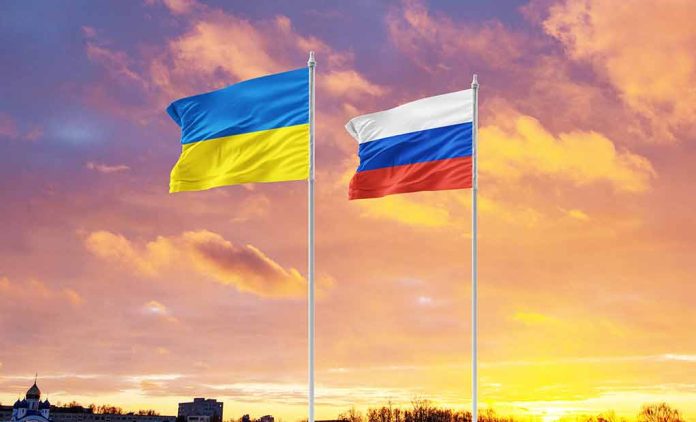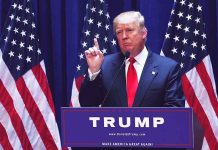
As the political winds shift in America, Russia carefully maneuvers its strategy to achieve its long-term goals in Ukraine while preparing for potential diplomatic challenges under a Trump presidency.
At a Glance
- Ukrainian soldiers express guarded optimism regarding Trump’s potential support.
- Russia remains determined to fulfill its objectives in Ukraine regardless of U.S. leadership.
- The Kremlin expresses a willingness to engage with Trump’s administration.
- Trump’s past criticism of U.S. aid to Ukraine raises concerns about future support.
Cautious Optimism in Ukraine
Ukrainian soldiers stationed in eastern Ukraine cautiously view the prospect of Trump’s U.S. presidential victory. Commander Mozart emphasizes the crucial role of sustained American aid in countering Russian advances. The aid, including Javelin anti-tank missiles supplied under Trump’s previous administration, was instrumental in strengthening Ukraine’s defenses. While Trump admired Putin and was skeptical of U.S. foreign engagements, Ukrainian forces remain concerned about the continuity of support from the United States.
Kyiv citizens display a pragmatic attitude toward Trump’s victory, with underlying worries about potential territorial concessions in exchange for peace. VoteCast polling highlights a partisan divide within the U.S., indicating more Harris voters favor continued support for Ukraine than Trump supporters, adding another layer of uncertainty to the situation.
Moscow’s Calculated Strategy
Russia voices no illusions about a potential second Trump administration but signals readiness to work with the new U.S. leadership. The Kremlin’s spokesman, Dmitry Peskov, downplays expectations of congratulatory exchanges between Putin and Trump, while Trump has portrayed Putin as “pretty smart” for his moves in Ukraine. Russia’s foreign ministry reaffirms its intent to achieve stated objectives in Ukraine, highlighting a steadfast approach to fulfilling geopolitical ambitions.
The conditions necessary for ending the conflict have not changed, and Moscow perceives them as well-known in Washington. Meanwhile, Trump’s criticism of American support for Ukraine adds to the complexities of Moscow-U.S. relations, underscoring the Kremlin’s strategic balancing act amidst volatile global political dynamics.
NATO Allies and Global Diplomacy
NATO allies, notably France and Germany, convened a defense meeting in Paris to consider the security implications of Trump’s victory. Secretary-General Mark Rutte supports a “peace through strength” approach, perhaps paralleling Zelensky’s expression of optimism toward negotiating stronger peace terms. From a geopolitical standpoint, Trump’s presidency may challenge NATO allies to reassess defense strategies amidst evolving U.S. foreign policy directions.
Russia’s strategy remains focused on securing its influence and advancing its foreign policy goals in Ukraine. This approach highlights Moscow’s commitment to its objectives, adapting to changing political climates to fortify its geopolitical standing irrespective of the U.S. administration.














